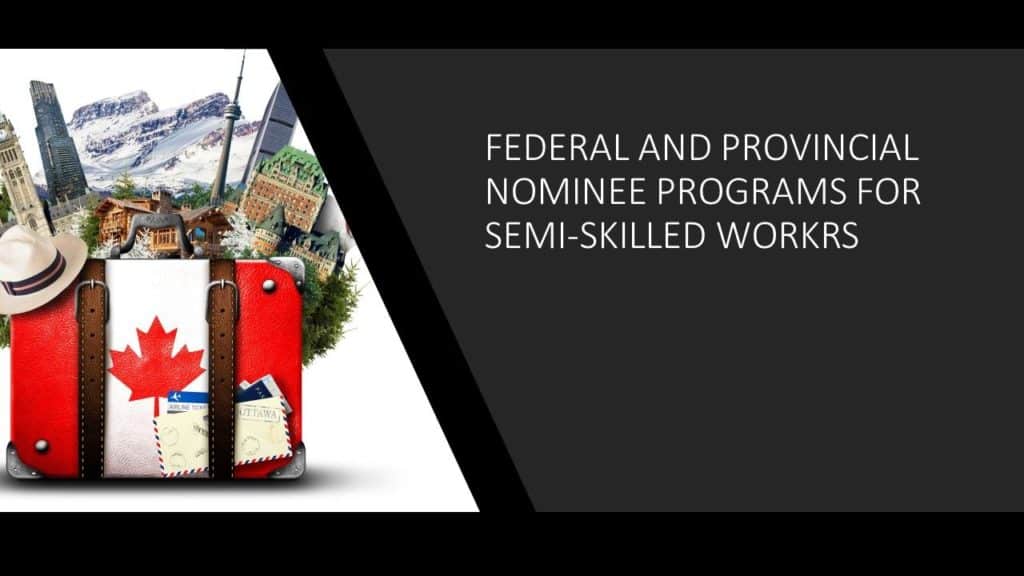
WHEN
Live webinar July 20, 2022 @ 11:00 AM – 4:30 PM EST
OR available available video recording
INSTRUCTORS
Andrew Carvajal &
Mark Holthe
DURATION
5 hours
SUMMARY: This course will provide an overview of several options to apply for Canadian permanent residence as a semi-skilled worker – NOCs C and D (NOC 2016) or TEERs 4 and 5 (NOC 2021). The instructors will sample a number of federal programs including the Atlantic Immigration Program, Rural and Northern Immigration Pilot and the Agri-Food Pilot. Various provincial programs will also be reviewed, including a comparative chart of provincial/territorial programs for semi-skilled workers.
CPD CREDITS
For Lawyers and Paralegals
Law Society of Ontario
• Substantive Hours: This program is eligible for up to 5 hours
Law Society of British Columbia
• Approved for 5 CPD credits
Law Societies of Alberta, Manitoba, Newfoundland and Nova Scotia
• For members of these Law Societies, consider including this course as a CPD learning activity in your mandatory annual requirements
For Regulated Canadian Immigration Consultants
College of Immigration and Citizenship Consultants
• Approved for 5 CPD hours
• Video recording valid until July 20, 2023
Currently awaiting further accreditation
This course is no longer for sale.
Click below to see an updated version:
If you are interested in several previous year courses, reach out to us at [email protected]

Andrew is a Toronto lawyer and partner at Desloges Law Group. He received a Bachelor of Arts, Master of Arts, Bachelor of Laws and Bachelor of Civil Law from McGill University. He was called to the Bar of Ontario in 2011.
Andrew’s legal expertise involves immigration law, administrative law and some civil litigation. His immigration practice focuses on permanent residence applications under federal and provincial economic programs, all types of business/corporate immigration, applications for sponsorship under the family class and temporary residence applications.
Andrew also represents individuals and corporations in administrative matters, professional and academic discipline cases, as well as Small Claims Court litigation. His professional discipline practice includes the representation of Regulated Canadian Immigration Consultants in complaint and discipline proceedings before their regulatory council.
Besides his work at Desloges Law Group, Andrew has been an instructor in the Immigration Consulting program at Herzing College and a guest speaker in a number of immigration education programs and seminars organized by professional associations and community centres. He is also a frequent contributor to several publications dealing with immigration, refugee and administrative law and has been invited to speak about immigration changes on local and national news segments.
Prior to practising law, Andrew was a sociology professor at McGill University and a university researcher in projects dealing with criminal justice, equality laws, family transformation and social research methods.